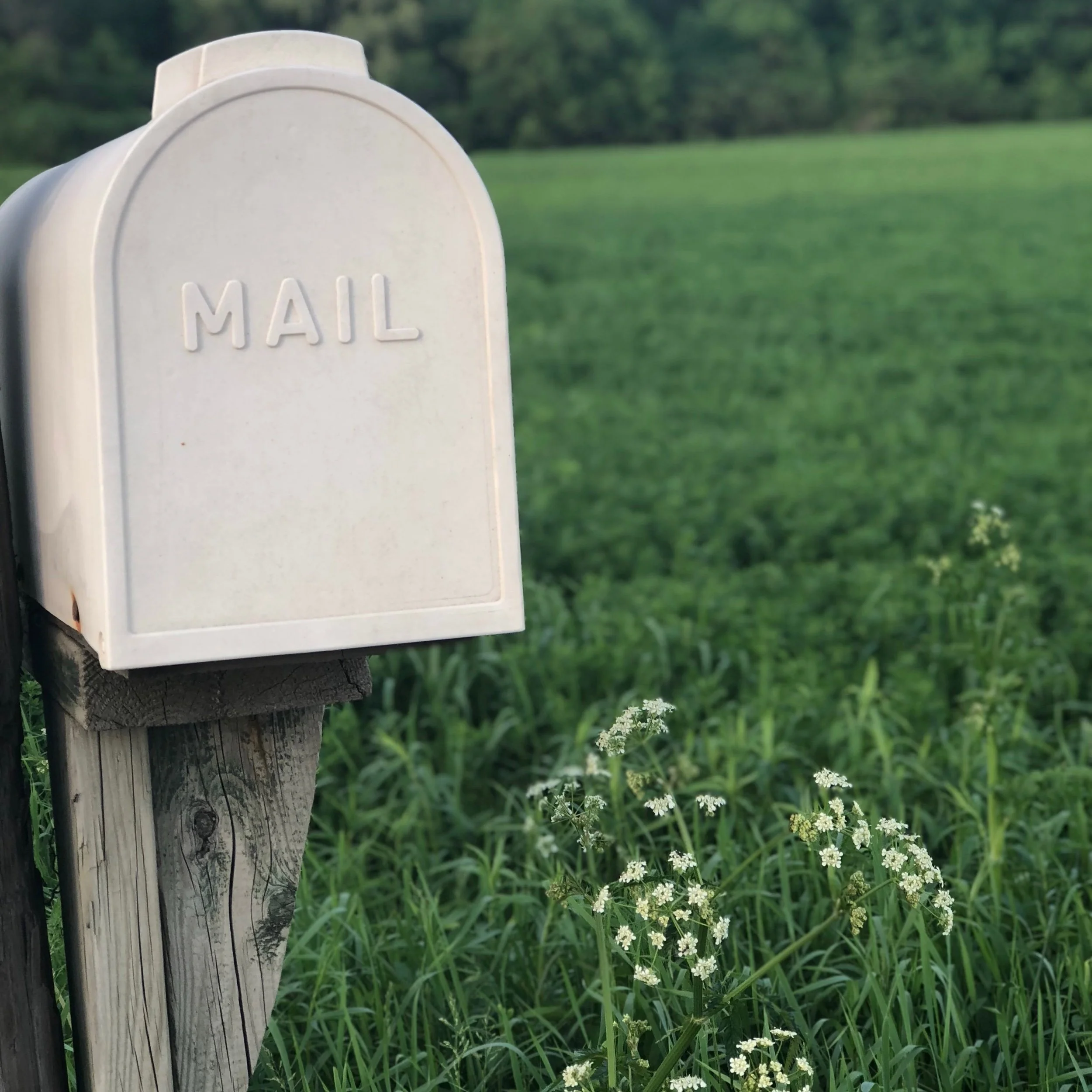David and Sam are both members of The Chartered Institute of Fundraising’s Supporter Experience Committee. This network of fundraisers is dedicated to identifying best practices and providing thought leadership aimed at ensuring quality supporter experiences. In today’s podcast conversation, David and Sam challenge us to ask whether less homogenous and less industrialist fundraising practices might improve the fundraising experience for those on both sides of the exchange. Many of David and Sam’s observations beg the question of why so many charities remain content to squeeze enormous populations of donors into a system that assumes that everyone shares the same motivations for giving.
Read MoreAlex isn’t kidding when he says it seems like The Chronicle of Philanthropy has been retelling the same story about disillusioned fundraisers for a long time. Those of us who have been around for a while are well aware of the fact that, at any given time, at least half of the fundraisers out there are looking for another job and that very few boards and bosses have come to a consensus about how fundraising really works. As of late this familiar story has zeroed in on how poorly prepared some employers are with making hiring decisions and how often they miss opportunities by relying on an arduous interview process.
Read MoreStuart wants us to carefully think about whether we’re designing resilience into our organizations and, if not, ask ourselves if difficult and uncertain times are really to blame for some of our financial misfortunes. I have been an admirer of Stuart’s work for quite some time. His research begs the question of whether our scholars have done more harm than good by borrowing as many theories as they have from the marketplace. Stuart’s “Nonprofit First” thinking insists that we should construct theory from what has emerged within our sector rather than from somewhere else.
Read MoreI was grateful to Alex, co-founder of The Giving Block, for ensuring that we add a timely conversation about the FTX-Bankman Fried collapse to The Fundraising Talent Podcast’s library of conversations. Shortly after this story started making headlines, I appreciated seeing that Alex and Pat offered their take on the situation and assured nonprofit leaders that the effect of this fiasco would be minimal for most charities and their crypto-minded donors. This was perhaps welcome news for those who, like myself, are only beginners at making sense of how cryptocurrency fits in our fundraising efforts. What effect all this will have on effective altruism, Bankman-Fried’s ideological framework of choice, is yet to be seen.
Read MoreAs a leader in Seattle’s arts community and a college professor, Jackson is just getting started. Southern Theatre magazine has recently named Jackson among a group of rising leaders who are paving the way for the future of fundraising. What I most appreciated about today’s conversation was that, while Jackson is explicit in his desire to do away with fundraising’s narrow focus on the top three percent, he’s evidently chosen not to be envious and make wealth-bashing part of his repertoire. Jackson isn’t typecasting anyone.
Read MoreToday’s podcast conversation offers a tough pill that I suspect some of us aren’t willing to swallow. Jim wants us to wrestle with the question of why today’s nonprofits are afraid of their own obsolescence. Instead of planning to eventually close, Jim wants to know why, for all intents and purposes, our organizations collectively make up what has become a growth industry. Are we willing to admit to ourselves that raising money for problems that never get solved is big business?
Read MoreMy conversation today with Jillian was a great reminder to me of what I have always believed to be one of the most meaningful aspects of nonprofit work: the opportunity to create community around common struggles. For most of our lives, Jillian and I have shared a common obstacle that can interrupt our daily lives in life-threatening ways. 99% of the time, our seizure disorders are completely manageable, and we can exist in the world just like other able-bodied citizens. Unfortunately, in a matter of seconds and without warning, our lives and the lives of anyone in our care can be at great risk. Discovering that we shared this common thread in our stories is what initiated today’s podcast conversation.
Read MoreMy conversation today with Adam was both timely and inspiring. Adam wants us to see how the logic of the gift affords a more holistic, long-term, and collaborative perspective where the focus can be on the quality of relationships rather than making comparisons of one’s contribution to another. Adam explained how he has produced programming at Jewish Studio Project that, rather than using the traditional fee-for-service approach, relies on the gift economy. He explained that everyone contributes what they can and recognizes that they are there to give just as much as they are there to receive.
Read MoreStephanie Schwartz is the Founder and CEO of Little Bean Group, a fundraising consultancy in Washington, DC. Stephanie loves to work with leaders who want to dream big and who recognize that fundraising is often the path by which their dreams come to fruition. Stephanie affords her clients the benefit of extensive experience in both education and advocacy. In today’s conversation, Stephanie challenges us to change our expectations of board members and not necessarily, as I often say, “letting them off the hook” but thinking strategically about where they can most effectively contribute to the overall fundraising effort.
Read MoreThis is the second in a two-part conversation with the editors of Collecting Courage: Joy, Pain, Freedom, Love which has been described as “an honest, raw account” of the experiences of 14 Black charity leaders and fundraisers in North America. In response to the project’s success, the editors are convening readers who want to continue on the journey towards racial reconciliation and collective healing in our sector.
Read MoreThis is the first in a two-part conversation with the editors of Collecting Courage: Joy, Pain, Freedom, Love which has been described as “an honest, raw account” of the experiences of 14 Black charity leaders and fundraisers in North America. In response to the project’s success, the editors are convening readers who want to continue on the journey towards racial reconciliation and collective healing in our sector.
Read MoreHeather wants charities to recognize that they may be vastly underestimating the value they bring to their corporate sponsors and that, in doing so, they may prohibit themselves from building mutually beneficial relationships that can bring far more value than simply financial support. Heather explains that we’re beyond the era of old-school corporate giving where the charity delivers on the good and the corporate sponsor just delivers on a check. Heather is the founder and president of The boutique fundraising consultancy, BridgeRaise, which helps nonprofits take their corporate giving efforts to a new level starting with aligning everyone’s values.
Read MoreGreg kicked off today’s conversation with the suggestion that there is going to be an increasing divide between those shops whose fundraising efforts can thrive and those whose cannot. Greg believes a lot of this will be evident in the success or lack thereof in organizations’ planned giving efforts. While Greg insists these efforts don’t have to be especially complicated, our organizations will have to match our desire for these more significant gifts with the wherewithal to most effectively and appropriately negotiate, receive, and acknowledge them. Our team at Responsive appreciates that Greg is among our consulting colleagues who are allowing our Three Lanes Theory to inform some of his thinking on this.
Read MoreHow does the assumption that our donors are intentionally hoarding wealth in a donor-advised fund help any of us accomplish our goals? And, perhaps more importantly, how does such negative spin help anyone make sense of why these tools have become so popular in the last several decades? While the critics want us to focus on changing legislation and trying to coerce generosity with additional rules and regulations, I say we ought to learn how to have more meaningful relationships with our donors. Will changing the rules necessarily improve our bottom-line or just make our jobs even harder than they already are?
Read MoreConversations of this sort have me convinced that the next generation of non-profiteers will think very carefully about whether to embrace the twentieth-century, consumer-oriented approach to fundraising to which many of us still remain very loyal. Dion has only been at this for a couple of years and has quickly figured out that contemporary fundraising has a tendency to focus on the short term, commodify the stories of those being served, and elevate the donors like kings and queens rather than as fellow citizens who share in a commitment to the same cause.
Read MoreConversations of this sort have me convinced that the next generation of non-profiteers will think very carefully about whether to embrace the twentieth-century, consumer-oriented approach to fundraising to which many of us still remain very loyal. Dion has only been at this for a couple of years and has quickly figured out that contemporary fundraising has a tendency to focus on the short term, commodify the stories of those being served, and elevate the donors like kings and queens rather than as fellow citizens who share in a commitment to the same cause.
Read MoreToday’s podcast conversation with Ray Gary was fantastic. Why? Because Ray evidently doesn’t relate to the world like a technocrat who is convinced tech will save the planet. Ray certainly understands the role technology can and should play; however, he also understands that technology can’t be expected to do all the heavy lifting. Ray wants to see generosity become a habit and lifestyle rather than a one-off transactional experience that we’re often counting on technology to ensure happens. As the founder and CEO of iDonate, Ray believes that if applied correctly technology can amplify the good that the sector is already doing.
Read MoreMy guest today on The Fundraising Talent Podcast is Paulina Artieda, executive director for The New Philanthropists, an organization that works to create more racially diverse and inclusive nonprofit boards in Austin. Their mission is to build a pipeline to leadership for people of color; cultivate diversity, equity, and inclusion among mainstream nonprofit boards; and enable nonprofits to be more effective stewards of public trust and to produce better outcomes for the people they serve. My conversation today with Paulina begs the question of whether our board recruitment strategies align with our DEI aspirations.
Read MoreMadge challenged us this morning by asking what would it look like if more nonprofits accurately reflected the communities their organizations served. This is one of the conversations I have with my students every spring, and my career has afforded me opportunities to see where we’re getting this right and wrong. How do we ensure that our boards and bosses have a grasp of who they are serving and why? As Madge explained, studies have shown that less than 20% of nonprofits are led by people of color while the vast majority of our nonprofits serve communities of color. Much of our conversation today was about making sense of how to change this reality.
Read MoreOne of our goals with our roadshow is to shine a spotlight on highly capable individuals who are helping their local nonprofit community to thrive. One such individual is Cat, founder of the Giant Squid Group, who I’m delighted will be a part of the lineup for our upcoming roadshow stop in Austin on September 16th.
Read More



















